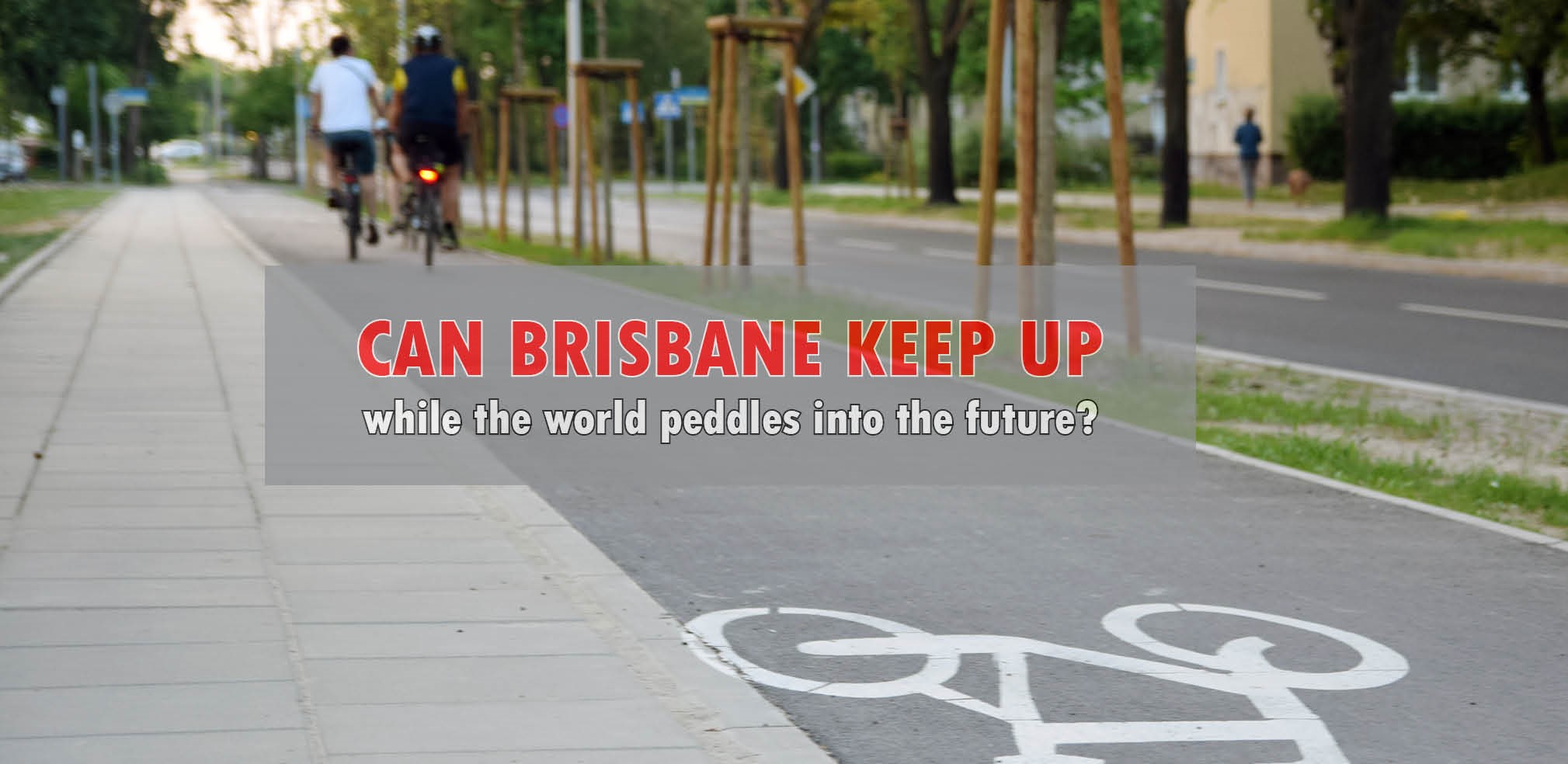Building car parks still remains ingrained in the Australian psyche.
Oh, that dreaded morning commute by car during peak hour. The traffic snarls, stopping and starting and slowly, very slowly. At least I could try and sip my all-important morning coffee during these enforced stoppages, however I still managed to spill it most mornings. The working from home arrangements brought upon us by Covid-19 have certainly been somewhat life changing. I now enjoy a sleep in and my coffee without the fear of ruining a new dress or scalding my thigh. Yes, it is enjoyable not to have to sit in traffic!
We as a country are always ‘upgrading’ roads by widening them and adding in extra lanes to continue our love affair with the car. It is not easy to break free from car dependency. Access to parking continues to be top of mind for Australians. I myself am guilty as charged, paying for a car park in Newstead.
This pattern cannot be broken, until local governments stop promoting car dependency and our transportation network gets the overhaul promised. Covid – 19 has presented an opportunity like no other to rethink our public spaces including streets, with upgraded cycleways and footpaths. The pandemic is changing the Australia psyche. it feels like everyone is outside more, whether it be cycling, running or walking. The Brisbane Times reported a 90% spike on Brisbane’s bikeways during most weekends since the start of the pandemic. There are increasing calls to permanently shut down some city streets to cars, bring forward much-needed cycleway upgrades and encourage a shift to cycle friendly commuting.
It is a widely accepted, that private vehicle travel is inversely proportional to the availability of alternative transportation modes and the demand for car parking is directly correlated to the demand for private vehicle travel. The Household, Income and Labour Dynamics in Australia (HILDA) released a survey that on average Australians spend 4.5 hours a week getting to and from work – a rise of 23% since 2002. To be able to change the mindset of the Australian public, we need to plan, build and deliver alternative transportation modes. Together with, developing greater walkable neighbourhoods to mixed-use development nodes in our suburbs.
Brisbane City Council understands the need to invest in improved public transportation services and active transport infrastructure to move away from car-dependent developments. Brisbane City Council’s (Transport Plan for Brisbane 2008-2026) and the Lord Mayor’s 2019-20 Budget included $6.1 million to begin the planning of five new green bridges and investing in alternative transportation infrastructure aiming to reduce traffic congestion. The following key priorities for ‘congestion-busting’ projects for 2016 to 2020:
- 60 new buses every year;
- $122 million in public transport operating subsidies;
- Planning and construction of the Brisbane Metro;
- $100 million for the continued expansion of bikeways; and
- 5 new green bridges across Brisbane.
However, recent amendments to the Brisbane City Plan 2014 have increased car parking rates, even where within 400 metre walking distance of a major public transport interchange, including inner suburban railway stations such as Albion, Auchenflower or Coorparoo and major interchanges such as Garden City. This amendment came as progressive cities around the world are doing the exact opposite and removing minimum car parking requirements to combat housing costs and shift focus on environmental sustainability. Sadly, Brisbane’s parking rates are higher than Sydney and Melbourne, as well as regional centres with limited public transport infrastructure networks. This leaves me perplexed – how does increasing car parking rates meet council’s goals to reduce traffic and congestion in our suburbs or improve sustainability?
Right now, is the opportunity to fast track active transportation infrastructure projects. It is time to reclaim our streets and correct our car parking obsession! – Covid-19 has given a one in a hundred-year opportunity to do this better. People are experiencing outdoor life with few cars on the road, providing minimal disruption to upgrade and expand our bicycle networks and walkable neighbourhood projects. The community is also experiencing a change of habits towards socially distant activities such as cycling, which also promotes positive mental health. Lets take the streets back! Let’s take action to reduce car dependency, and in turn put this sustainability measure into action. It’s time to start breathing in the fresh air.



